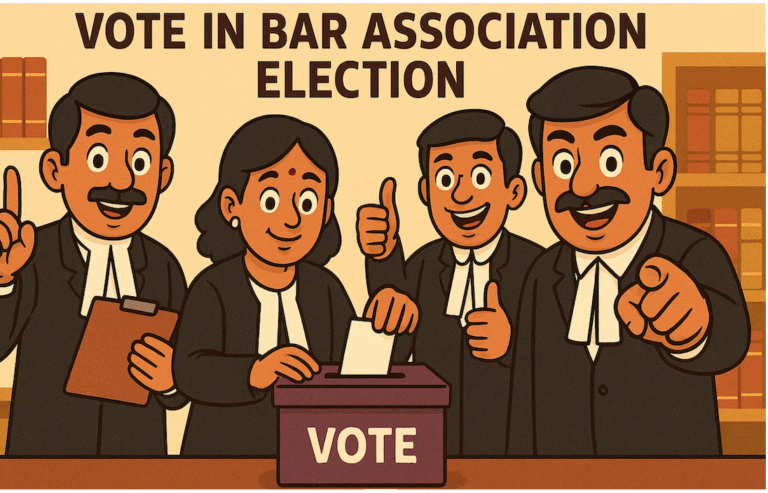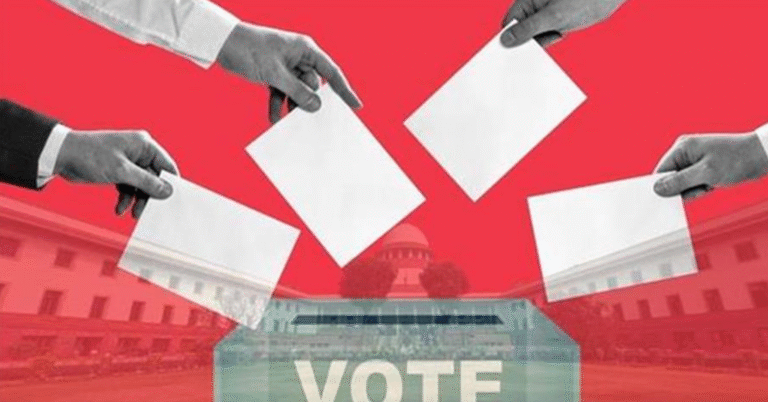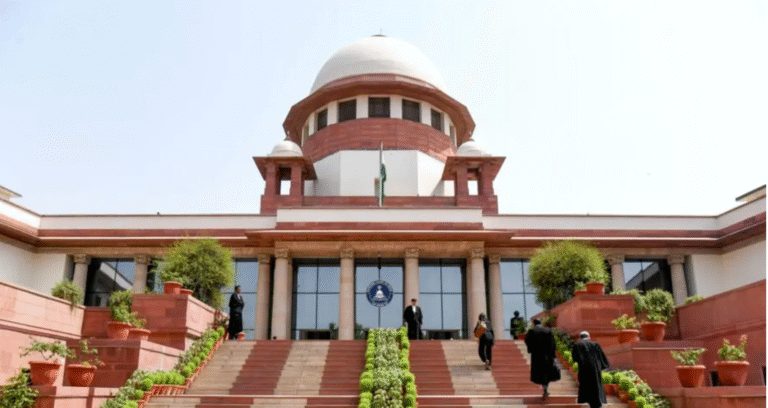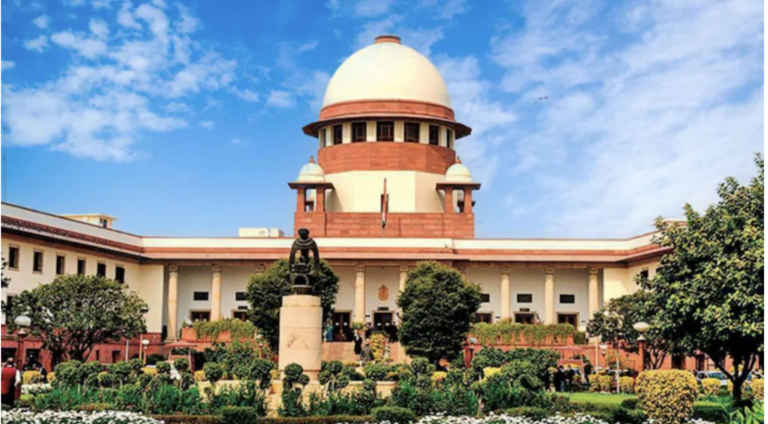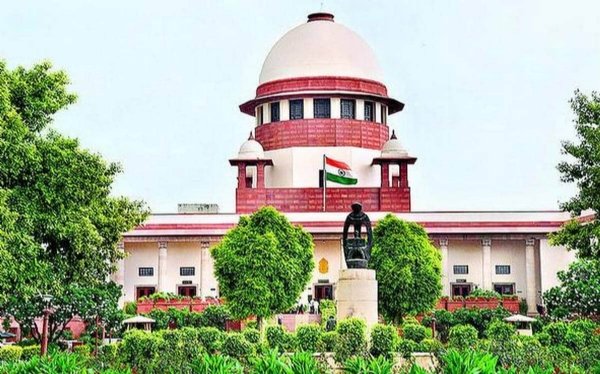Land Scam Exposed: Forged Sale Deed & False Affidavit Before High Court; Contempt and Perjury Proceedings Initiated Against Smt. Pratibha Shah, Naushil Shah, Parin Shailesh Shah, and Their Advocates.
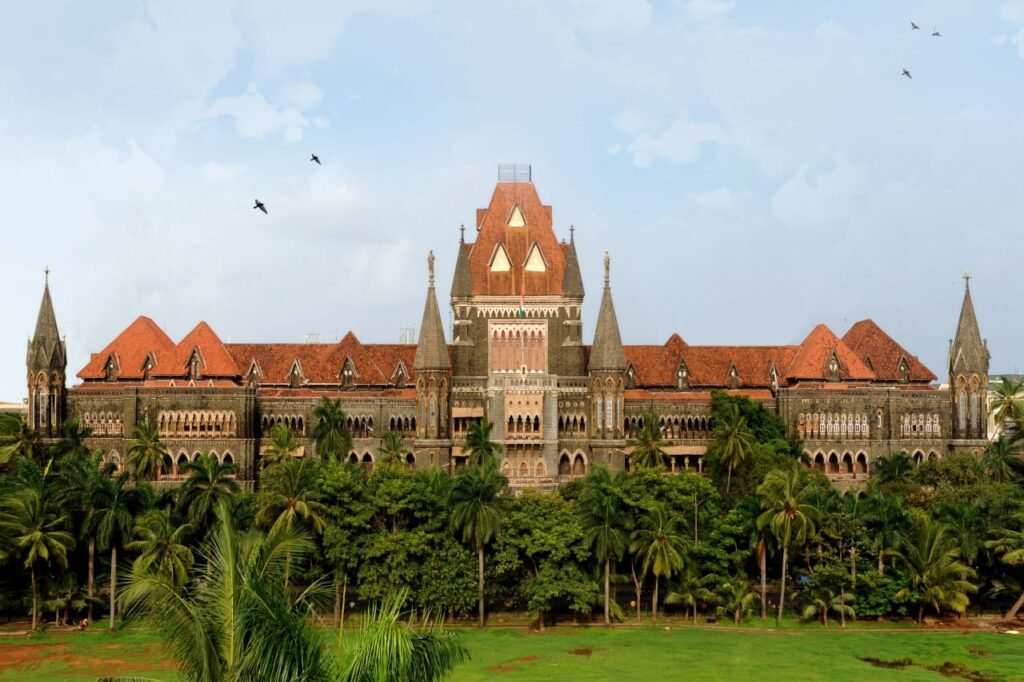
A major land-grabbing attempt through a forged sale deed and false affidavit before the Hon’ble High Court has come to light.
The High Court has directed the accused to file their reply affidavit on or before 16th September.
The accused are alleged to be habitual offenders involved in repeated acts of forgery, including the fabrication of forged sale deeds by fraudulently signing on behalf of dead persons.
In fact, the Police have already filed a chargesheet against Smt. Pratibha Shah, Naushil Shah, Parin Shailesh Shah, and others under Sections 467, 420, and allied provisions of the IPC, offences which carry the maximum punishment of life imprisonment.
On 03.09.2025, Adv. Nilesh Ojha, Adv. Vijay Kurle, and their associates, representing complainant Sh. Kalpesh Jain, highlighted before the Hon’ble High Court the serious forgery committed by the accused and their advocates. The Court directed the accused to file their reply affidavit by 16th September and posted the matter for hearing on that date.
Mumbai: Mira Bhayander:
Background of the Case
The complainant, Sh. Kalpesh Jain, has filed a perjury and contempt petition before High Court supported by strong documentary evidence, including certified government records.
The disputed land was originally owned by Mrs. Marry Francis in 1952, and its possession was handed over to the Todi family for cultivation.
Subsequently, the Tahsildar recognized Gaurishankar Todi as a protected tenant and lawful owner. The land was thereafter lawfully sold to Kalpesh Jain, who has been in exclusive possession since 2010.
Allegations of Forgery
To unlawfully grab the property, the accused allegedly executed a forged sale deed dated 02.04.1974, where one Kachralal Shah falsely posed as the owner.
The deed bears neither the signature of the true owner Mrs. Francis, nor there was any registered power of attorney authorizing Kachralal Shah to sale the land.
In their affidavit, the accused falsely claimed possession since 1975. However, panchnamas, inspection reports, CCTV footage, electricity records, and government officers’ findings confirm uninterrupted possession by the Todi family since 1954 and thereafter by Kalpesh Jain.
Legal Position
The Hon’ble Supreme Court has categorically ruled that a sale deed not signed by the true owner is void and of no legal effect. Revenue entries such as mutation or 7/12 extracts cannot confer ownership rights.
o M. S. Ananthamurthy v. J. Manjula, 2025 SCC OnLine SC 448
o Mahnoor Fatima Imran v. Visweswara Infrastructure (P) Ltd., 2025 SCC OnLine SC 1062
o Shakeel Ahmed v. Syed Akhlaq Hussain, (2023) 20 SCC 655
o P. Kishore Kumar v. Vittal K. Patkar, 2023 SCC OnLine SC 1483
Criminal Antecedents
This is not the first offence involving these accused. In Crime No. 430 of 2022, registered at Navghar Police Station, a chargesheet has already been filed against Pratibha Shah and others under Sections 420, 467, 468, 465, 471, 474, 34 of IPC for similar forgery to grab land from innocent residents.
Multiple instances exist where they have forged documents by even using signatures of deceased persons.
Current High Court Petition
The complainant, Sh. Kalpesh Jain, has approached the Hon’ble High Court by invoking Section 379 of the Bharatiya Nagarik Suraksha Sanhita (BNSS), 2023 — the provision corresponding to Section 340 of the Code of Criminal Procedure, 1973 (Cr.P.C.). Through this petition, he has sought initiation of criminal prosecution against the accused persons as well as their advocates for committing grave offences of fraud upon the High Court by tendering forged and fabricated documents and by swearing false and misleading affidavits in judicial proceedings.
Adv. Nilesh Ojha, along with Adv. Vijay Kurle, and other associates representing the original owner Sh. Kalpesh Jain, appeared before the Hon’ble High Court in the hearing dated 03.09.2025. During the course of arguments, the learned counsels specifically drew the attention of the Court to the serious acts of forgery and fabrication allegedly committed by the accused. Upon consideration of the submissions and the material placed on record, the Hon’ble High Court directed the accused to file their reply affidavit on or before 16th September 2025, and accordingly adjourned the matter for further hearing to the said date.
The acts complained of fall squarely within the ambit of serious penal provisions under the Indian Penal Code, 1860, including:
- Section 191 – Giving false evidence
- Section 192 – Fabrication of false evidence
- Section 467 – Forgery of valuable security, will, etc., punishable with imprisonment for life
In addition, allied provisions such as Sections 193, 196, 199, 200, 209, 471, 474, and 120(B) of IPC may also be attracted in light of the systematic nature of the fraud, perjury, and fabrication of records.
Judicial Principles on Perjury and Contempt
The law laid down by the Hon’ble Supreme Court of India and various High Courts in this regard is clear:
1. Dishonest litigants and their advocates who indulge in filing forged documents or false affidavits before the Court are guilty of perjury and contempt of Court.
2. Such conduct strikes at the root of the justice delivery system and amounts to a direct assault on the majesty of law.
3. Prosecution in such cases is not discretionary but mandatory, as suppression of truth and introduction of falsehoods cannot be tolerated in judicial proceedings.
4. Courts have repeatedly emphasized that grant of bail, whether anticipatory or regular, to such offenders is impermissible. They must face trial and be dealt with sternly as they are a continuing danger to society and to the sanctity of judicial processes.
Binding Judicial Rulings
The Hon’ble Courts have consistently ruled that:
- Both the litigants and their advocates who participate in filing false affidavits or relying upon forged documents are equally liable for prosecution.
- The principle of accountability extends to legal practitioners who knowingly aid or abet their clients in misleading the Court.
- Allowing such offenders to escape unpunished would embolden lawbreakers, encourage fraudulent litigation, and corrode public faith in the judiciary.
The present petition, therefore, not only seeks punishment of the accused for their individual acts of forgery, fabrication, and perjury, but also urges the Hon’ble High Court to enforce the settled law that conspirators and their legal representatives who pollute the stream of justice cannot be granted bail and must face full-fledged criminal trial for their acts, which are punishable with the maximum sentence of life imprisonment.
This legal position is settled in the following judgments
· ABCD v. Union of India, (2020) 2 SCC 52
· Sundar v. State, 2023 SCC OnLine SC 310
· Ashok Kumar Sarogi v. State of Maharashtra, 2016 ALLMR (Cri) 3400
· Municipal Corporation of Greater Bombay v. Annatte Raymond Uttanwala, 1985 SCC OnLine Bom 495
· Ranbir Singh v. State, 1990 SCC OnLine Del 40
· Silloo Danjishaw Mistri v. State of Maharashtra, 2016 SCC OnLine Bom 3180
· Koppala Venkataswami v. Satrasala Laxminarayana Chetti, AIR 1959 AP 204; and State v. Mangesh Chavan, 2020 SCC OnLine Bom (DB) : 2020 ALL MR (Cri) 2979,
· Baduvan Kunhi v. K.M. Abdulla, 2016 SCC OnLine Ker 23602
· Kusha Duruka v. State of Odisha, (2024) 4 SCC 432
· H.S. Bedi v. National Highway Authority of India, 2016 SCC OnLine Del 432

